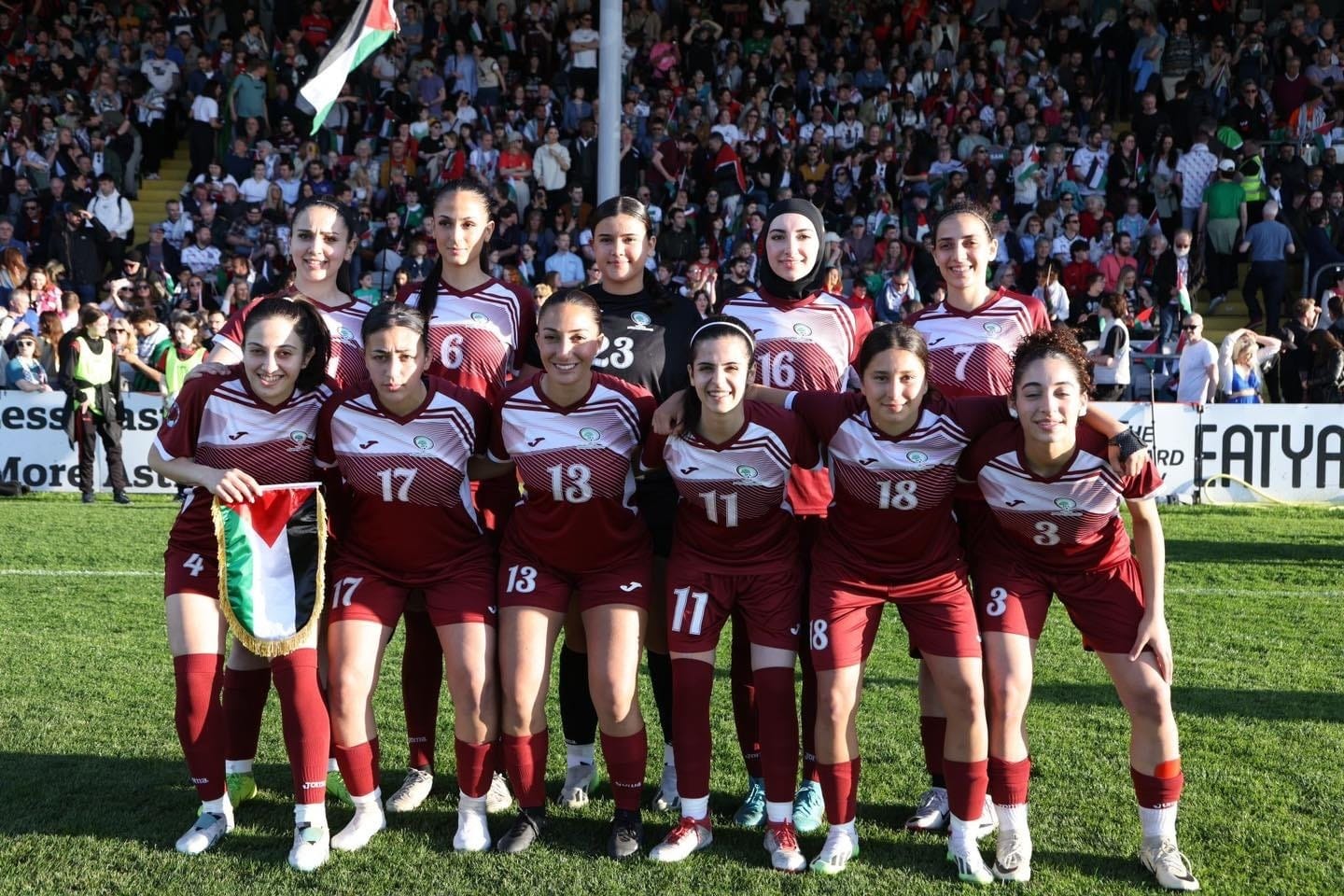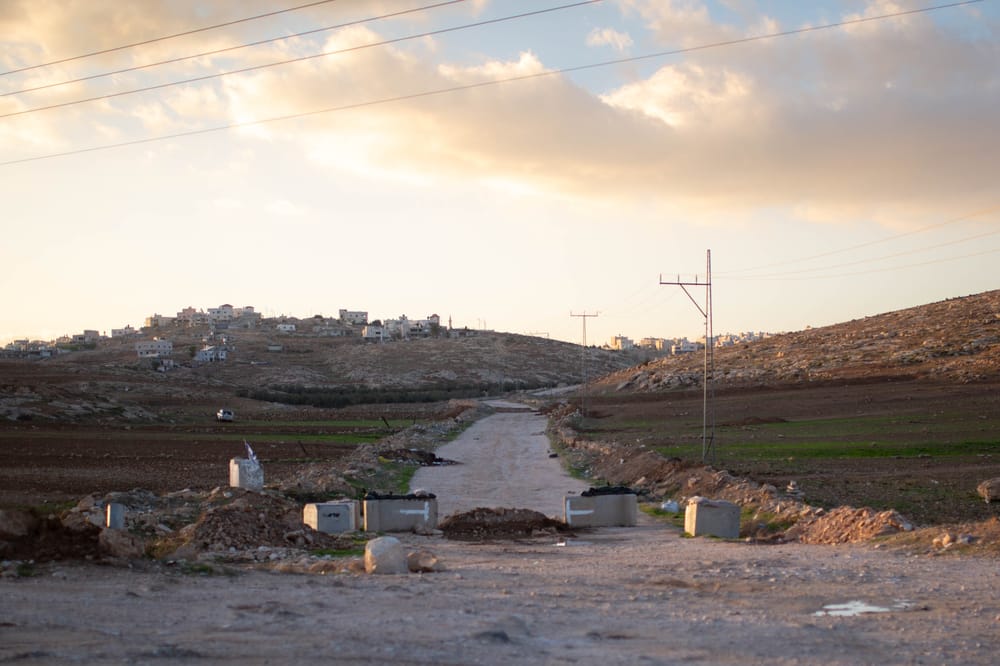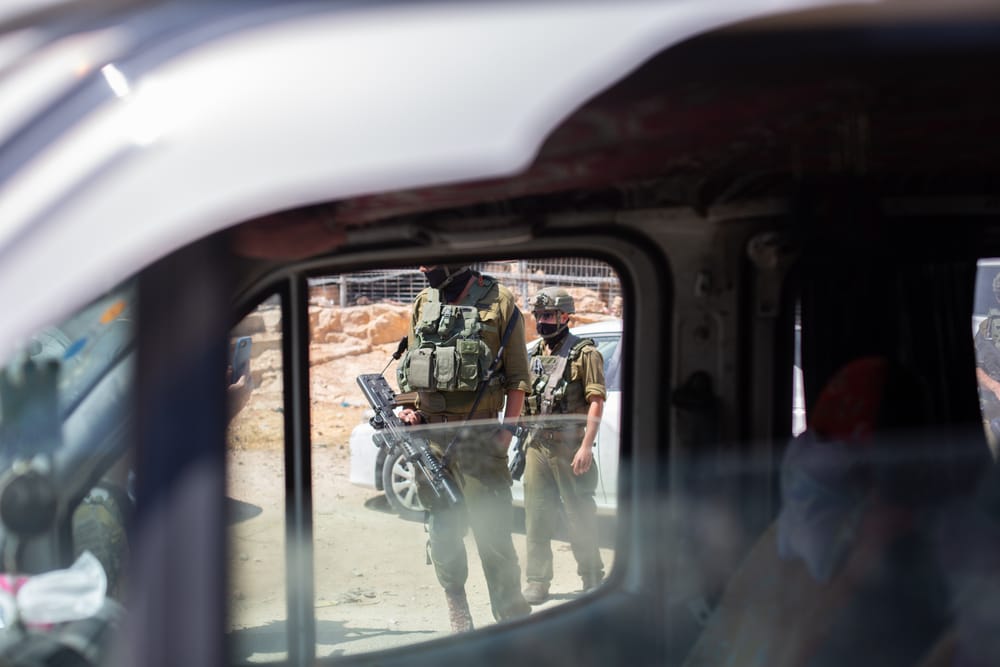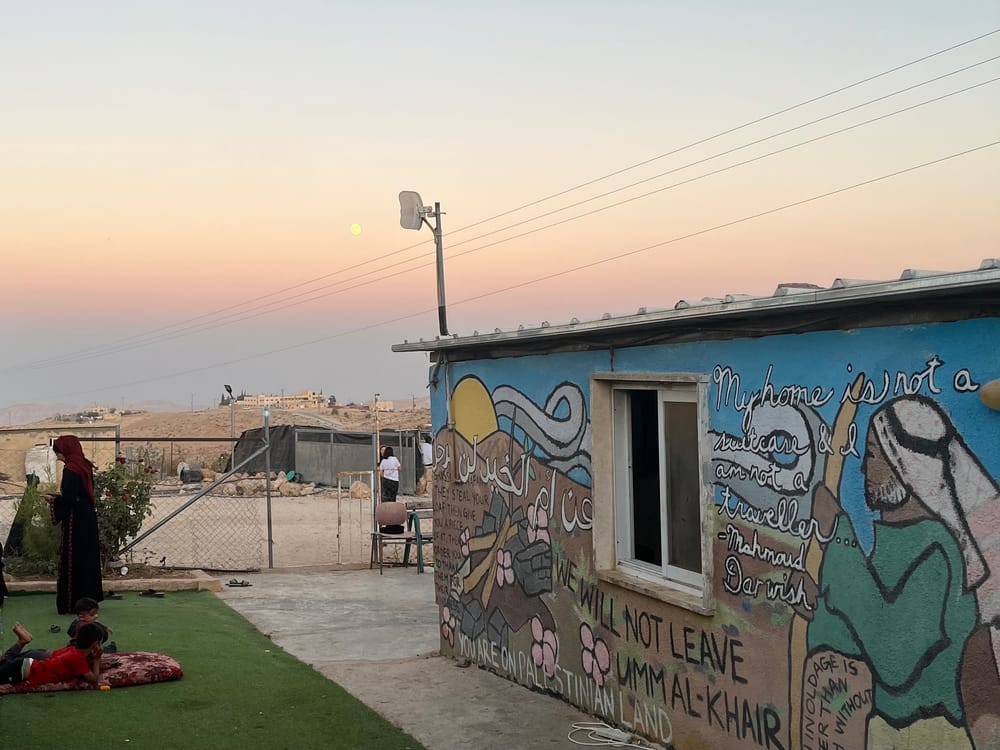The remarkable resilience of Palestinian women’s football
Victory on the pitch in the midst of unimaginable loss.

In July 2022, a group of girls from Gaza travelled to the West Bank for an under-16s tournament. Their team, Al Mashtal (“The Nursery”), would go on to win the competition. The victory was expected to catalyse a growing women’s football scene in Gaza.
“They had dreams. They wanted to play for the national team, and they were very excited young players, young talents,” explains Dima Said, a coach for the Palestinian Women’s national team. Now Said doesn’t know where many of those girls are. “We have lost contact with them, their club has been completely destroyed.”
All domestic football competitions were immediately suspended in October 2023. Since then, hundreds of footballers have been killed and hundreds of sporting facilities partially or completely destroyed across the West Bank and Gaza in the last two years.
Meanwhile, sporting venues which remained physically intact were regularly seized and repurposed by Israeli forces. Gaza’s Yarmouk Stadium became the site of an Israeli detention centre in December 2023. Images of stripped men surrounded by tanks inside the ground were beamed across the world. It has since been demolished, and its remains are being used as a refugee camp.
Despite this level of destruction at home, the Palestinian national teams have played on. The women recently returned from a set of qualifiers for the 2026 Asian Cup in which they beat their hosts Tajikistan 3-0. To Said, a former captain herself, the continuation is about more than just sportsmanship: “It’s about identity and the hope we possess as Palestinian people. For young girls, seeing their team continue gives them reason to believe in the future, even with the most devastating situations.”
Charlotte Phillips, the team’s 20-year-old goalkeeper, feels the same way. “People are so often trying to erase Palestine as a whole,” she says, “so by playing and giving people a visualisation of who we are [we show] that, despite occupation, despite genocide, despite years of colonialism and oppression, we’re able to succeed. We’re able to compete at the highest levels.”
Born in Canada, Phillips is one of many players who come from the country’s diaspora. Having qualified to play for both the Bahamas and Canada as well, Phillips’ family story is at the heart of why she chose to play for Palestine.
Her grandparents, George and Odette Dabit, fled Palestine in 1968 after being displaced several times. Odette told me that she lost both her brother and father at the hands of Israeli settlers. She recalled watching her father’s death in 1956 after he was hit with an axe. “We were scared, we were crying. And then I saw my father walking out from the big dining room. There were two columns there and he held on to those columns and then he fell backwards.” That image, she says, will never be erased from her mind.
After being called up to the national team three years ago, Phillips and her mother travelled to their ancestral homeland for the first time. “Playing there and really getting to immerse myself in my culture: it felt like a piece that I’ve been looking for my whole life,” she says.
She was quickly welcomed by her teammates, many of whom still reside in the West Bank. She was 17 at the time. “It was a really incredible experience playing with people who have been pillars of the game in Palestine for so long. They’ve been playing since I was a child.”
The international stage
Football has long been at the heart of Palestinian sporting identity. In the early 20th century, crowds of up to 5,000 were reported watching games played by the missionary school teams of Rawdat al Ma’aref and St George’s. Then, the ten-club Arab Palestine Sports Federation (APSF) was founded in 1931. The APSF saw itself standing in resistance to the Zionists who had co-opted the Palestine Football Association and competed in the 1934 World Cup qualifiers under the banner of Mandatory Palestine – despite only including Jewish players.
Since then, the history of Palestinian football has been intertwined with the country's struggle for recognition. After the founding of the Israeli state in 1948, many Palestinian footballers were expelled and club buildings seized. It would be another half-century before Palestine finally gained recognition from football’s governing body FIFA in 1998.
Women’s football in Palestine has a more recent history, with the country’s first women’s team founded in 2003. But the past two decades have showcased continual growth: at the outbreak of the war, there were 15 clubs in the West Bank and six in Gaza.
Samar Araj Mousa, the Athletics Director at Bethlehem University, was at the heart of the first team’s formation. It was her decision to bring together a group of local girls in Bethlehem to play a sport often seen as masculine.
“The goal was simple,” she says: “Create new opportunities for Palestinian girls and send the message that they could do what boys can do and better.” The girls were passionate, but there were challenges. “There were no courts, no efficient number of players, no efficient sport equipment.”
The movement restrictions imposed on Palestinians by the Israeli authorities, too, made it virtually impossible to practise on the West Bank’s only grass pitch in Jericho. The university’s concrete handball court had to suffice.
Still, it wasn’t long before the girls found their way onto the international stage. In August 2004, they competed in Jordan alongside ten other Arab teams in a five-a-side tournament. Mousa remembers the moment well. “It was a feeling of fear and pride to raise the Palestinian flag and prove to the world that we were able to continue the existence of the Palestinian people.”
From here, the women’s game continued to grow. The Bethlehem team was joined by others in Gaza, Jericho, and Ramallah. In 2008, FIFA officially recognised the Palestinian women’s national team. A reported 10,000 spectators watched their first home international fixture against Jordan in November 2009. For context, the England women’s team played in front of 3,681 spectators in a World Cup qualifier in October of the same year.
Over the following decade, Palestine would compete in international competitive fixtures across Asia and the Middle East while a fully-fledged women’s league was established at home. The reality of this progress makes the current paralysis of Palestinian sport even starker.
The widescale destruction and starvation by Israel in Gaza has made it impossible for any sport to continue in the Strip. There have been no games or training camps in the West Bank either, Said says, and when players have got together, they have faced being fired at with tear gas. Phillips recounts the experience of her teammates as they tried to train in Al-Bireh in November 2024: “Some of the girls were like 13 and Israel came and threw a bunch of canisters of tear gas onto the pitch. One of my friends has asthma and she couldn’t breathe. She almost had to be hospitalised.”
This is just one example of the difficulties players face when trying to practise football today. Said told me of the emotional burdens they also carry. “The players play with grief for families, for friends killed, those who are injured and all our people who have gone through a genocide.” Despite that, she says, “They still show up and they always perform on the field… This is such an important form of resistance and resilience.”
This resilience is evident in the country’s recent success at the U-20 West Asia Cup. In April, a youth team made up of girls mainly residing in the West Bank defeated Jordan on penalties to win the trophy. It was the first competitive title for the entirety of the women’s set up. Said described her elation at the result. “It was a historic win. It was a very emotional win, and it was proof that Palestinian footballers can succeed despite everything. It gives us a sense of hope and pride across the country.”
She believes that this victory won’t end at the youth level. “We have big plans for them. We hope that the next success will be on the women’s national first team.”
For Phillips, the victory is a message. “We have to play for everyone who is unable to play, for the girls in Gaza who might be more talented than us but never got the chance to prove it.”▼
Author
Gabriel Stewart is a journalist working on issues of politics and sports.
Sign up for The Pickle and New, From Vashti.
Stay up to date with Vashti.



